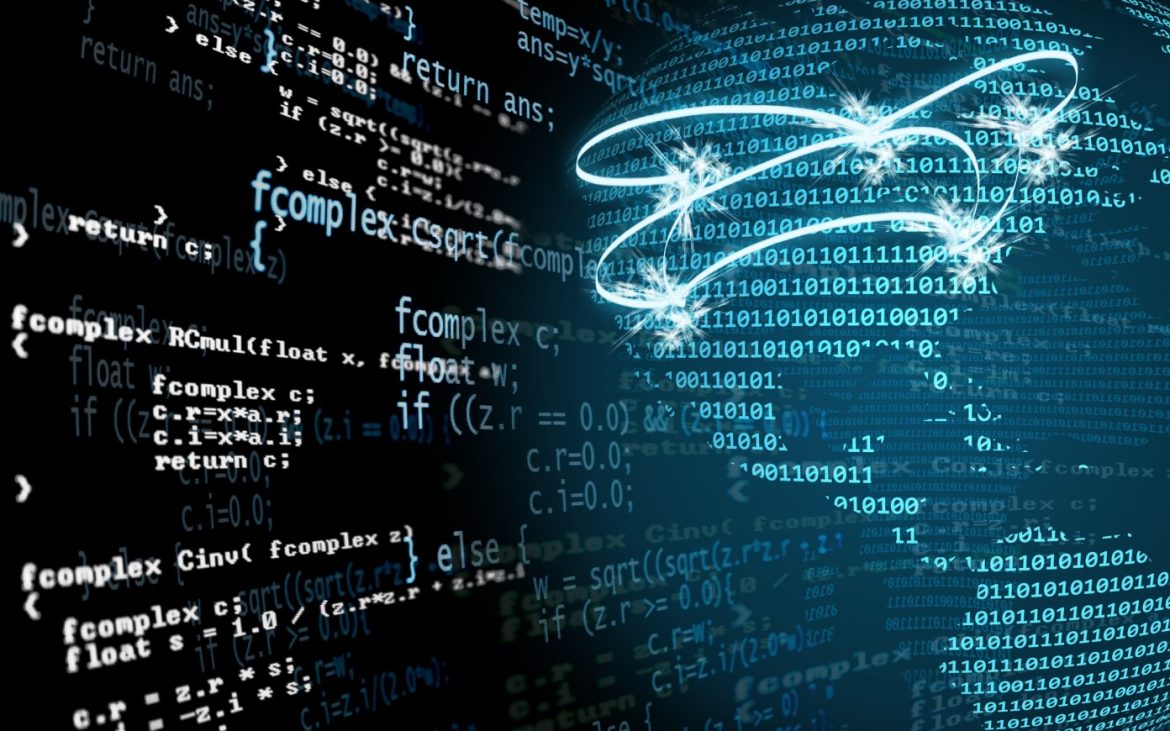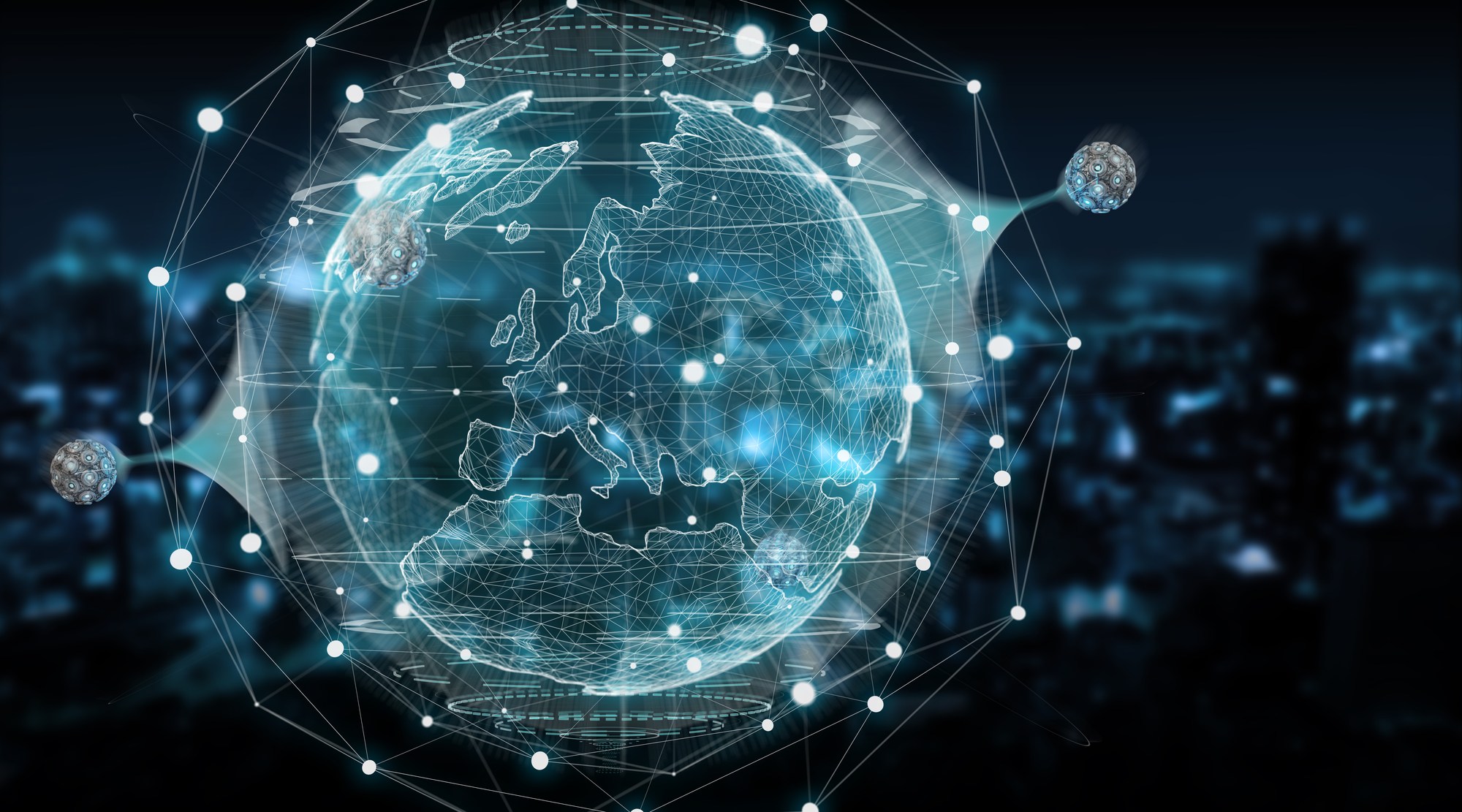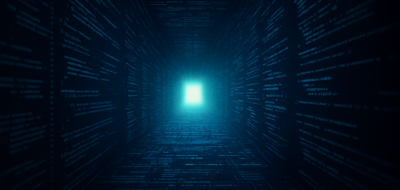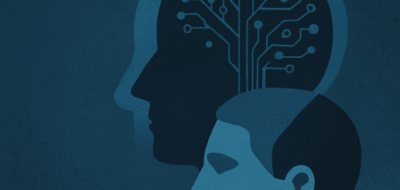My article in Data Driven Investor published 15th of January 2019.
It is not easy to imagine a technology that will receive as much publicity as the blockchain did last year but there’s little doubt that other new and innovative technologies will make even greater inroads into our daily lives in 2019.
Certainly, rapid progress in artificial intelligence will continue to be made and be widely reported. Despite the controversies, autonomous vehicles will proliferate, and it would be good to see serious, in-depth articles about industry regulation (licensing for the use of autonomous vehicles on public roads, safety standards, insurance, etc.) rather than last year’s sensational coverage focusing on accidents and disasters. We may also hear much more about connected vehicles: automobiles that are always online.
2019 is likely to witness continued debates on data security (focused particularly on social networks – their use and misuse, especially as regards the personal information of its users). And while it is difficult to predict quantum computing breakthroughs (these would be a technological sensation), research in the field is certain to continue. This year undoubtedly will see China make further leaps in smart technologies as it announced its intention to become a global center for AI by 2030.
Blockchain
Blockchain, which dominated the news last year, will continue to do so, and not just in the IT community. Global spending on blockchain was estimated at $2.1 billion in 2018, and the finance, insurance, real estate development and energy sectors are all keenly aware of its potential to transform their industries. Despite sensationalized reports on the hacking of cryptocurrency exchanges, the blockchain is well secured. Tamper-proof and transparent, it is succeeding in cutting out third-party middlemen with automated contracts and the most advanced and secure updatable ledger ever created.
What can we expect from blockchain in the near future? Standardization and financialization. The time has come to weigh the benefits blockchain can provide against the costs of its implementation. Leading blockchain providers (and their customers) will focus on drafting regulations as well as user and implementation standards.
As Blockchain 2.0 (yes, it’s reached that point) becomes easier to understand, it will increasingly find its way into various tools and applications, becoming practical for more industries. According to IDC, spending on blockchain implementation will reach ca. $12 billion in the next three years, rising at 73 percent annually.

Artificial intelligence
Artificial intelligence, which comprises machine learning, neural networks, and advanced robotics, will become even more autonomous, astounding people with independent responses to changes in data and circumstances. More than ever, we will be confronted by machines that think and make decisions, at times in ways that exceed our understanding. Once AI becomes more autonomous, it will boost the usability (and therefore the popularity) of self-driving vehicles, drones, robots, and other applications. But, as people begin to demand that we comprehend the algorithms that are driving our devices, technologies based on more transparent algorithms will gain an edge. The point is for people to know not only what decisions machines make, but also how they reach them.
The most common manifestations of AI in daily life will take the form of smart speakers and personal voice assistants, helping us shop, search the web and book tables in restaurants. The next two years will see an explosion of such technologies. According to Gartner, by 2020, 25% of all online queries will be made with voice commands (through smart speakers and assistants).
Given its strategic importance for society, AI will become a competitive battleground between governments and corporations. The United States and China will take center stage (with China gaining the upper hand in the next few years). According to IDC, AI spending will triple from 2018 to reach $77.6 billion in 2022. And while 15 percent of companies worldwide claimed to be using artificial intelligence in 2018, that will double this year.
According to a McKinsey Global Institute survey of the world’s largest companies, half are developing AI and deploying it in day-to-day operations. Another 30 percent are piloting AI initiatives. By comparison, only 19% of businesses were doing that in 2017.
Quantum computing
To skeptics, the quantum computer remains a pipe dream, with no truly groundbreaking solutions to be expected anytime soon. Nevertheless, when the breakthrough comes, it will be huge. Jeremy O’Brien, physicist and professorial research fellow at the University of Bristol, says that “in less than 10 years, quantum computers will begin to outperform everyday computers, leading to breakthroughs in artificial intelligence. The very fast computing power given by quantum computers has the potential to disrupt traditional businesses and challenge cybersecurity.”
Will the coming year bring new, significant developments on the quantum computing front? That’s a tough call, but we can be sure that work on qubit-based machines will continue.
In 2018, Microsoft announced it would produce a computer capable of breaking RSA code in a hundred seconds. It claims it will achieve this feat within the next five years. Time will tell whether this a mere marketing gimmick. I think the test of the technology will be in its usefulness for communications, specifically the so-called quantum internet and the latest Chinese research that has put a quantum-transmission-supporting satellite into space. Perhaps 2019 will see other satellites enable quantum particles to travel even faster.
Read full article
Related articles
– Blockchain poised to shake up our lives
– Will quantum computers doom the blockchain?
– Why do we care about blockchain technology?
– Will a basic income guarantee be necessary when machines take our jobs?










Tom Jonezz
Sometimes an AI is tasked with a very subjective question, like finding the ‘best’ job applicant. Bias is almost unavoidable because the machine has to make some kind of judgment. Someone is always going to look at that judgment as bias.
Oscar P
Say we have an insurance claims processing algorithm which decides if a claim should be approved or not. The AI may be looking at income, gender, demographics, age, location, credit history, claims history, and more to determine whether a claim is likely to be valid. If a claim is approved, we can take that transaction and change one variable, asking the model what if it was a female instead of a male. If the claim is then denied, then you know the model is biased.
AndrewJo
Oscar Peterson ? 🙂
John McLean
Hi Norbert, Cyber breaches has highlighted one key area. International Laws have no teeth, because there are no laws written and updated to deal with this. We have countries using cyber breaches for funding and masquerading layers down for ransom. Companies are paying the ransom, because their CEO’s have opted not to strengthen the IT Infrastructure. Entry gates are open. Time for change.
AndrewJo
Building and scaling quantum networks is a formidable endeavor, requiring sustained and concerted efforts in physics, computer science, and engineering to succeed. The proposed stages of development will facilitate interdisciplinary communication by summarizing what we may actually want to achieve and providing guidelines both to protocol design and software development as well as hardware implementations through experimental physics and engineering.
Oscar P
After all, maintaining standards of ethics doesn’t just require that people fill out a form and sign it; it requires that investigations happen when there is suspicion of harm — whether intentional or not. It requires recognizing when the public trust is being undermined and figuring out how to restore that trust. This toolkit, therefore, is not simply a checklist to be completed at the start of an AI-enabled project. Rather, it is a “living guide” to be used continuously for conversations and management practices while the technology remains in public service.
CaffD
Does that not make the ethicist philosophically weak? He seems to have caved to the pressure of other parties, the former Nokia executive for example in removing the red lines from the piece. If HE cannot have the wherewithal to put a foot his foot down and say no I will not remove this red line. What hope do other people have? What hope does an computer scientist developing the AI have if they think something is wrong with the AI being developed, to stand up and say hey no. If someone whos literal job it was to create this rule set couldnt stand up to people.
If you so strongly believe that what is being done is just bad ethics why be aparty to it or seemingly abet this whitewashing behavior that opens more gaps in the rules than producing meaningful results.
Oscar P
Great read. Thank you
Norbert Biedrzycki
In 2019, AI will expand to cover new dimensions such as media, healthcare, retail, manufacturing, communication, research – in fact, almost every area of modern life has the potential to be influenced by AI applications.
PiotrPawlow
Experts are warning of the threat posed by China’s use of artificial intelligence to develop a survellience state, and say the risk of such authoritarian behaviour spreading to other parts of the world is increasing.
“If I were asked which was the bigger threat from China to the West, is it Huawei or is it their research on artificial intelligence I would say it’s their research on artificial intelligence,” Professor Austin said.
China has been investing heavily in AI – generally referred to as the development of computer systems that can perform tasks normally requiring human intelligence – in recent years and research by its institutions in the field has surged.
johnbuzz3
The current situation is such that the entire world can now be controlled from a simple hand-held device we call a smartphone. Starting from connecting to anyone on any corner of the earth, to handling all types of financial and business decisions, the smartphone is capable of all. The rapid digitization of the world is making it smaller still. One of the most notable advancements in the world is financial technology. Due to the new age digital product engineering, financial tech products are coming out on top and changing the way finances are handled.
Oscar P
For many decades, government has been using technology to track things more accurately, make things more efficient, and make factually-informed decisions. Today we are entering a new era in which government leaders increasingly shift decision-making authority away from people and towards technology, especially with Artificial Intelligence (AI) on the rise. However, we are not as carefully investigating the technological tools as we investigate the people in whom we vest authority. This is partly because we don’t have a clear set of ethics that we would like our technology to follow (for example, “treat everyone equally” vs “treat everyone equitably”). But it is also partly because government leaders haven’t had access to tools which consistently and systematically investigate AI to understand where it might succeed or fail. From social media to social services we hear stories on a daily basis of how algorithms are ruining people’s lives and further fueling mistrust — often among those who are already marginalized.
Tom Jonezz
Because the notion of the algorithm in construct is to alleviate the burden upon AI to expedite ‘more’ or somehow ‘better’ justice upon the people(s), whatever the concern in question to be judged, the total second variable value is not an ‘absolute value’ because people are always hurting out of hurt and criminalized by crimes so the second variable is essentially negative.
Zidan78
Recognition of patterns is called clustering and it is one of the dumbest AIs we have. As for “meaning” here I will have to dissapoint you. AI we currently have or will have in the future based on current technology will never be able to give data meaning. Only human can do that. AI can sort information on specific pattern but it can never give that information meaning.
Also note that AI = Machine learning = Deep learning. And most of methods we use are extremelly primitive. As for Neural networks it is AI built on perceptrons and neurons. And even this is very primitive because all it does is to calculate matrixes of weights all over again. Terminology is misleading but it is how it is.
Tom Jonezz
Is the use of intelligent machines a threat to society, an opportunity or just technology? What is AI and how will it develop in the future?
John Accural
Pretty much everyone needs 5lbs of AI! They don’t know why. They just need some.
Tom299
I’m scared a computer will take my job because it’s so easy and a computer can do it. What should we do to show we are valuable? I’ve got it let’s all not go to work. Bet they won’t try to replace is with less expensive options not that we have cost then money.
Norbert Biedrzycki
If Europe develops and diffuses AI according to its current assets and digital position, it could add some €2.7 trillion, or 20 percent, to its combined economy output, resulting in 1.4 percent compound annual growth through 2030
Adeptus99
Great read. Thank you
Check Batin
The problem with quantum computing, as the article mentions in passing, is the decoherence problem – a particle interacts with its environment, so that its state transition probability no longer contains interference terms typical of a quantum system. As such, the system behaves classically. To get around this, you need huge amounts of energy to keep the system cold for enough time. This is the barrier between the dream and reality.
My concern about quantum hype is that investors and large corporations are getting on the bandwagon. While it is nice to have money coming into an idea, it isn’t smart money. The decoherence problem was noted in the 70’s, and no one has been able to solve it, but suddenly, now that investors have created a hype bubble, the assumption is that the problem will be solved within 5 years. This is a law of the universe, not something a bunch of kids can write a bit of JavaScript to get around. Once investors lose patience, the money will leave, and probably the more stable grant money will leave as well. Quantum computing as a field will come to a standstill.
Adam T
Blockchain and AI – vote for this 🙂
Norbert Biedrzycki
According to McKinsey Global Institute, Europe could see growth up to 20% on average by 2030, if it scales up efforts in digital and AI
TomK
A remarkable look into the future!
The functions of leaders and their tasks will change greatly.
The middle management will disappear.
Focusing on the current market needs will force the leaders to appear immediately for a project and on the whistle.
The top management will probably keep staying.
The Cheerful Pixie dreams and wonders what the defense industry will look like and whether the upcoming changes will also touch politicians world?
tom lee
The last time someone talked about “bearer-” anything was in the original Die Hard. And even then, no one who saw the movie knew what the hell “bearer bonds” were because they hadn’t been talked about since the roaring 20s.
Having said that: I look forward to the tokenization of all the things.
SimonMcD
I don’t know if we’ll make all that much progress in 2019, but we’ll see. The IoT and smart cities in many ways go hand in hand. But what we really need is an open source solution. And AI will only really progress if we go back to studying AGI.
Tom Jonezz
If AI depends on having a data set to learn from than chances are the interesting things Chinese AI can do will only work in China. The Chinese government trains an AI on their intranet to figure out how to push public opinion around, but it flops on the English internet because the average Chinese netizen thinks differently from your average redditor.
Adam Spikey
AI will expand human capability. I wonder how much more people will be able to create after neural lace becomes commercially viable.
Mac McFisher
Still long time to go IMHO
tom lee
Not so long I hope
The only question that needs to be answered for considering employing blockchain is “does the application need a database that require concurrent read AND write by multiple trustless parties?”. For stock/security exchange storage? Usually that answer is a strong no, even for stocks. So, since you asked
John Accural
Simply to build hybrid systems – based on transparent and reliable transactions on blockchain, but also with built-in management engine is relevant to many human needs of additional Human support during accidents
CaffD
My thought is. If he was so opposed to the final proposal that he would write a piece on it after the fact and name actual names of people who stood against his ideas. why not do it while it is being written? A lot of people are scared of AI. I feel at times unreasonably so. We should be cautious, but not scared. If you put out an article talking about how industry insiders are diluting guidelines to produce ethical and fair Artificial Intelligence a LOT of people will latch on. That is not even sensationalizing the situation, that is exactly what happened.
Tom Jonezz
If only it were really that simple, though. Unfortunately, it is not. Until we develop fully autonomous, fully self-programmed computers, we’re stuck with human beings, with our racial biases and hidden agendas, doing the bulk of the programming. And although some programmers may think of themselves as young Mr. Spock’s—all logic and no emotion—in the end they are just humans too. And they are unfortunately just as prone to bias and blinders as the rest of us. Nor can we easily train them to simply avoid writing their own biases into their algorithms. Most humans aren’t even aware of their biases.